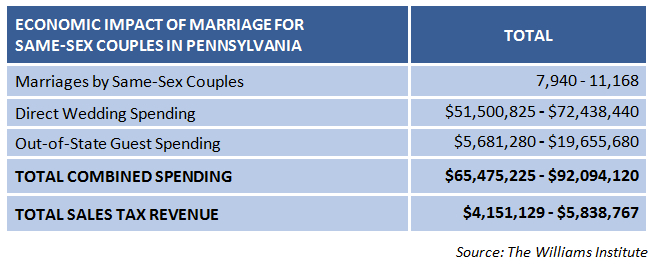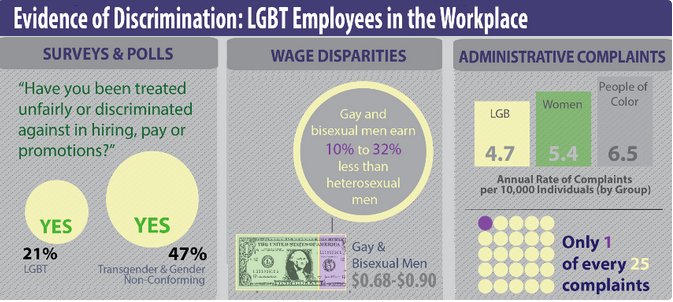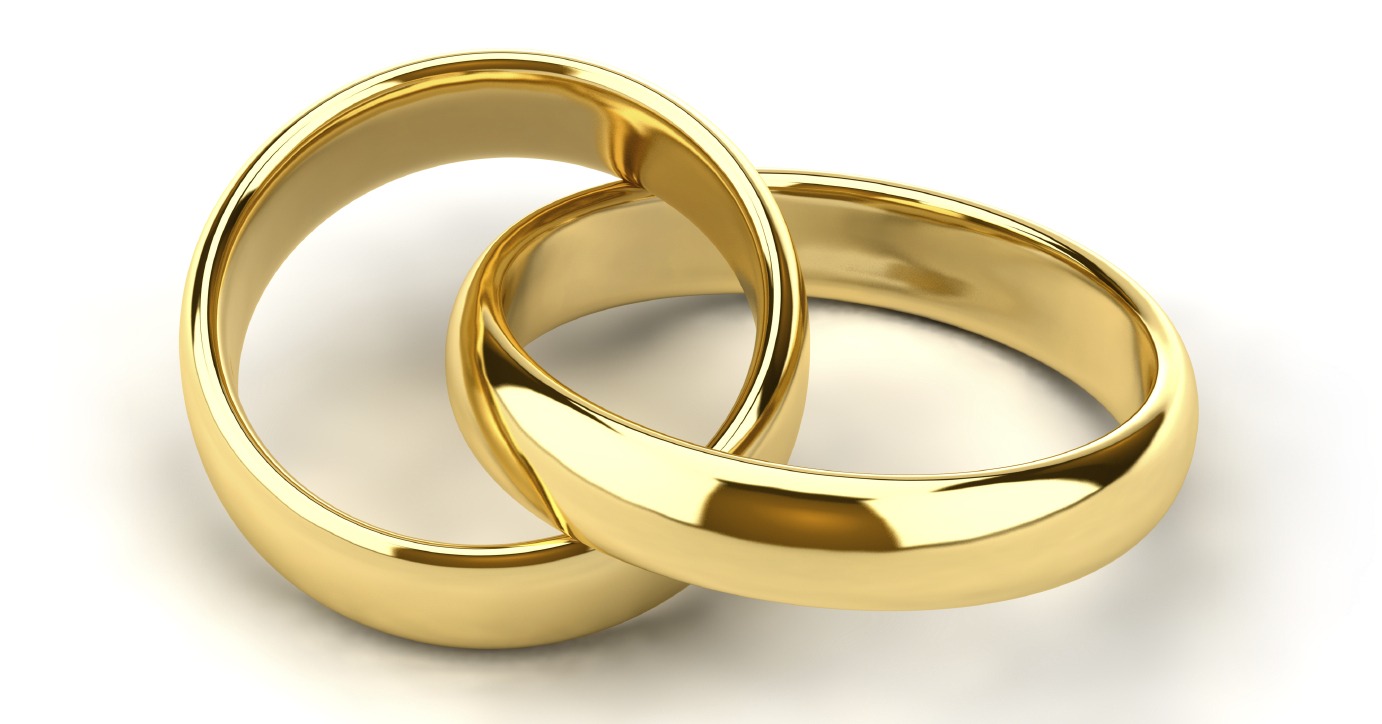Our (occasional) Monday gender issue focus:
Yesterday, at the Nantucket Film Festival, I watched the HBO documentary, The Case Against 8. Documenting the court battle against California’s Proposition 8, the film introduced me to a memorable group of people that included 2 same-sex couples who wanted to get married and their attorneys, David Boies and Ted Olson. An auspicious pair, Boies and Olson had opposed each other for Bush v. Gore but now they were fighting the Prop 8 same-sex marriage ban together.
During the movie, very briefly, they referred to Lee Badgett. As an economist who specializes in gender equity issues that relate to gay and lesbian people, she was called as an expert witness. Yes, so I was curious and checked out her research.
Her recent research on same-sex marriage looks at the economic boost it gives to states. Through wedding spending and tax revenue, Nevada, for example, from weddings and out-of-town visitors, within 3 years, will generate from $23 million to $52 million in spending and $1.8 million to $4.2 million in tax revenue if, like Massachusetts, 50% of all same-sex couples marry. For Nevada, that would mean 50% of her 7,140 resident same-sex couples will probably marry.
Here are the figures for Pennsylvania. We should note that while the totals are small compared to Pennsylvania’s GDP, specific in-state businesses and national chains will especially feel the boost.

In Utah, the numbers are small:

The message of the film was that unequal treatment of any minority has a widespread impact within and beyond that group. That impact would include the job discrimination stats shown below in an infographic from UCLA’s Williams Institute.

Our bottom line? Economically speaking, gender inequity, is all about underutilizing human capital. Consequently, whether based on gender, race or religion, equity relates to economic growth.
Our second bottom line: In a Freakonomics podcast, Dr. Badgett says, “The most important thing to know is that it is actually pretty hard to get good data on lesbian, gay, and bisexual people.” As a result, Freakonomics warns us that the economic data on gender equity is, “on some level” suspect.
Note: This post was slightly edited after it appeared.
California's Proposition 8 Was Also About Economics

Elaine Schwartz
Elaine Schwartz has spent her career sharing the interesting side of economics. At the Kent Place School in Summit New Jersey, she was honored with an Endowed Chair in Economics. Just published, her newest book, Degree in a Book: Economics (Arcturus 2023), gives readers a lighthearted look at what definitely is not “the dismal science.” She has also written and updated Econ 101 ½ (Avon Books/Harper Collins 1995) and Economics: Our American Economy (Addison Wesley 1994). In addition, Elaine has articles in the Encyclopedia of New Jersey (Rutgers University Press) and was a featured teacher in the Annenberg/CPB video project “The Economics Classroom.” Beyond the classroom, she has presented Econ 101 ½ talks and led workshops for the Foundation for Teaching Economics, the National Council on Economic Education and for the Concord Coalition. Online for more than a decade. econlife has had one million+ visits.





